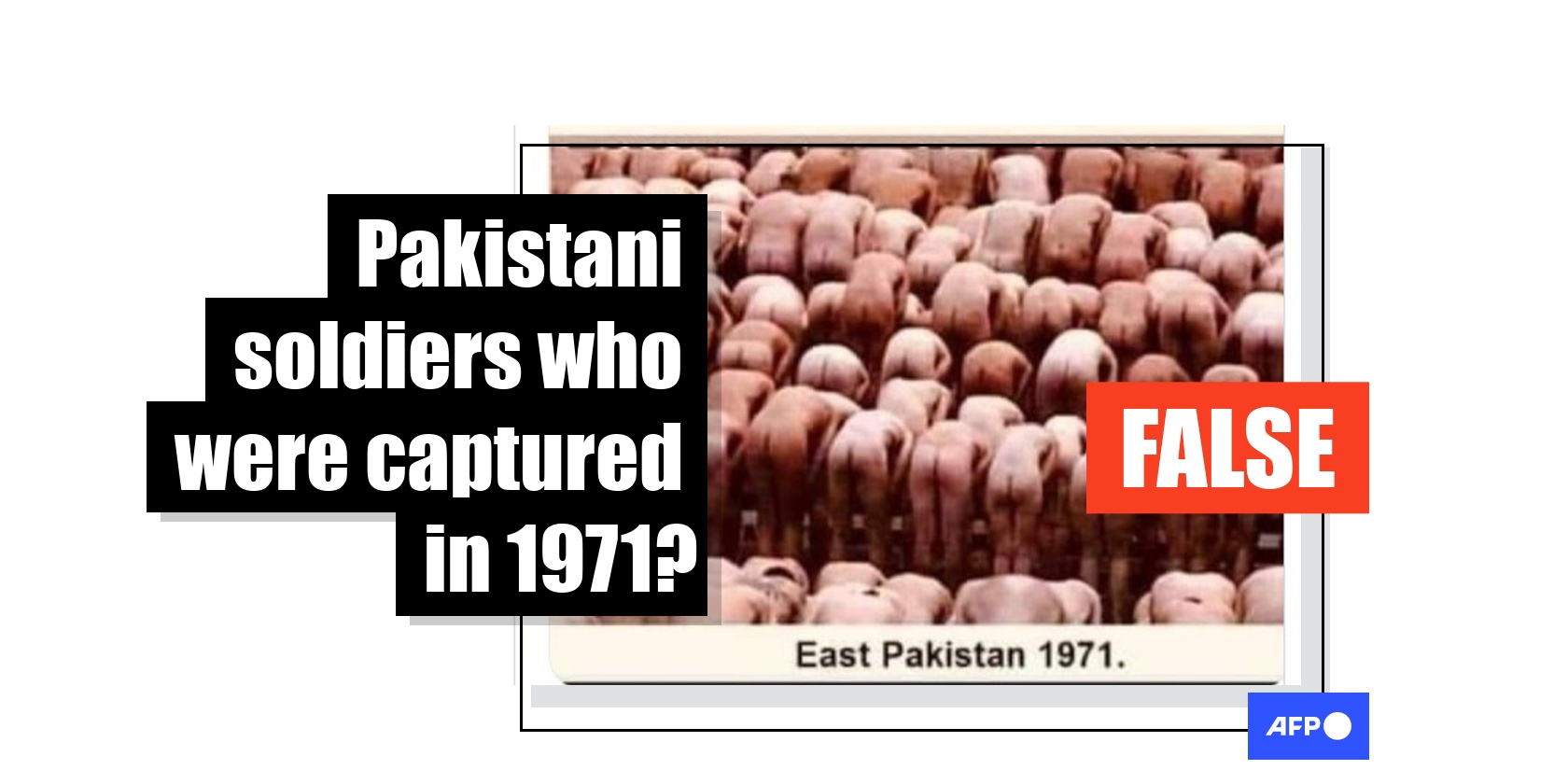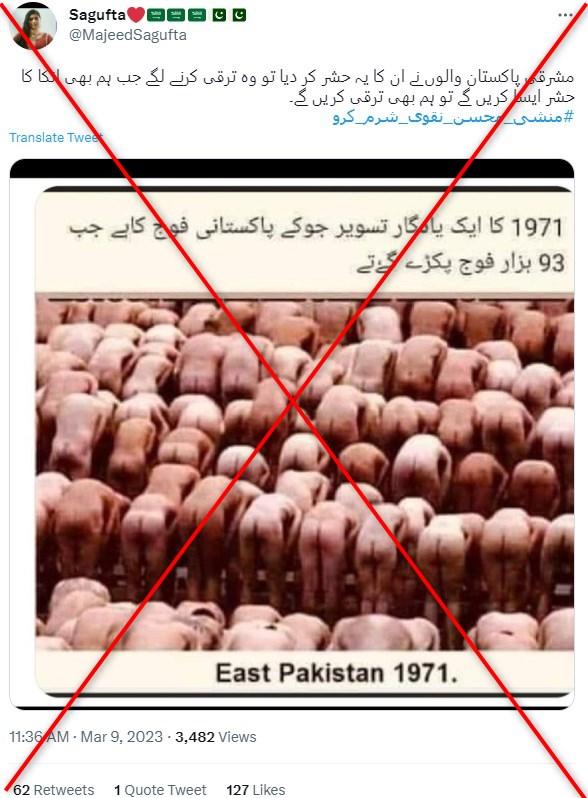
Photo shows volunteers posing for artwork in Germany, not 'captured Pakistani soldiers'
- This article is more than two years old.
- Published on March 15, 2023 at 10:47
- 3 min read
- By Wasi MIRZA, AFP Pakistan
"The people of East Pakistan did this to them and they started to develop. Once we start doing this to them, then we'll develop too," reads the Urdu-language caption of an image shared on Twitter here on March 9, 2023.
The image shows rows of naked people who are facing away from the camera and bent over. The English-language text below it reads: "East Pakistan 1971."
The Urdu-language text above the picture reads: "A memorable photo from 1971 which shows the Pakistani army when 93-thousand officers were captured."
Bangladesh -- formerly East Pakistan -- emerged as a new nation in 1971 after a brutal war for independence involving India, marked by horrific abuses. Bangladesh insists as many as three million people were killed.
During proceedings at the International Court of Justice in 1973, Pakistan said that over 92,000 Pakistani prisoners of war and civilian internees -- who had surrendered to Indian troops in East Pakistan in 1971 -- were being held in India.

The image circulated as ousted prime minister Imran Khan, who fell out of favour with the country's powerful military, was snarled in a series of legal cases.
The military, which has ruled Pakistan for nearly half of its 76-year history and maintains a strong influence on governance, has faced backlash for Khan's removal from office and analysts say some supporters of his Pakistan Tehreek-e-Insaf (PTI) party have since grown critical of the army.
Khan was shot and wounded at a rally in November and -- without providing evidence -- blamed the assassination bid on his successor as prime minister, Shehbaz Sharif, and a senior army intelligence officer.
The same image was shared alongside a similar claim it showed captured army officers on Twitter by accounts that appear to support the PTI, including here, here, here and here; and on Facebook here.
Urdu-language comments on the posts indicated some users were misled by them.
One comment translates as: "We should do this to them again. The entire 700,000-strong force should be made to parade naked through the streets of Pakistan until their whole progeny is destroyed. Otherwise, they will keep causing us misery as self-appointed judges."
Another reads: "Don't worry, they're still like this. That's why their mental state is so damaged. They haven't forgotten this incident and so they inflict pain on the people to relieve themselves of this mental anguish."
But the image in fact shows volunteers posing for artwork commissioned by the Kunstpalast museum in Dusseldorf, Germany in 2006.
'Three-dimensional body sculpture'
A reverse image and keyword search on Google found a similar photo used by Chinese state media outlet China Daily on August 6, 2006.
The photo's description reads: "Naked volunteers pose for US photographer Spencer Tunick, creating a three-dimensional body sculpture, at the 'museum kunst palast' in Duesseldorf August 6, 2006."
The photo is credited to Reuters and can be viewed on their picture archive here, where it has the same caption.
Below is a screenshot comparison of the image used in the false posts (left) and the Reuters photo (right):

A spokesperson for Spencer Tunick told AFP the photo shows his sculpture.
"That’s a detail of one of Spencer's artworks he made in Düsseldorf commissioned by the (Kunstpalast museum)," the spokesperson said on March 14.
A keyword search for Tunick's work found a similar photo here on Artnet, a US-based art market website.
The building seen in the background corresponds to Google Street View imagery of the Kunstpalast museum.
Below is a screenshot comparison of the photo on Artnet (left) and the museum as seen on Google Street View (right), with a similar feature of the building highlighted by AFP (right):

Copyright © AFP 2017-2026. Any commercial use of this content requires a subscription. Click here to find out more.
Is there content that you would like AFP to fact-check? Get in touch.
Contact us
